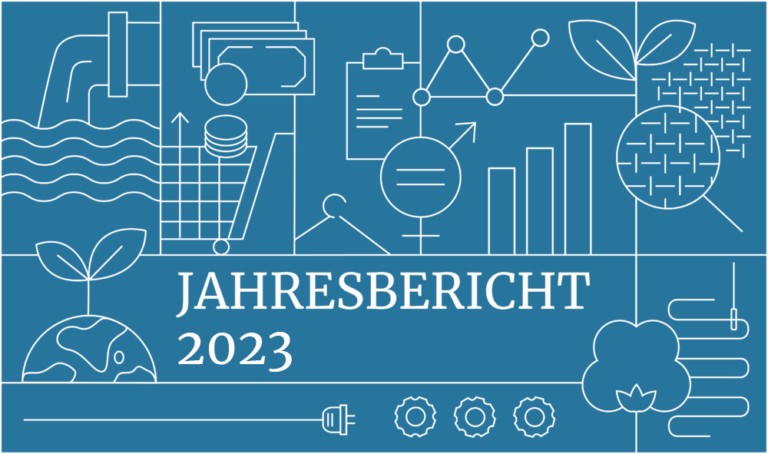
Annual Report 2023
Gib hier deine Überschrift ein Aktuelles 22.04.2024 Rückblick auf ein Jahr mit neuen Anforderungen und der Umsetzung der Neuausrichtung des Textilbündnisses Bei der Mitgliederversammlung am 17. und 18. April stellte die Leiterin des Bündnissekretariats Linda
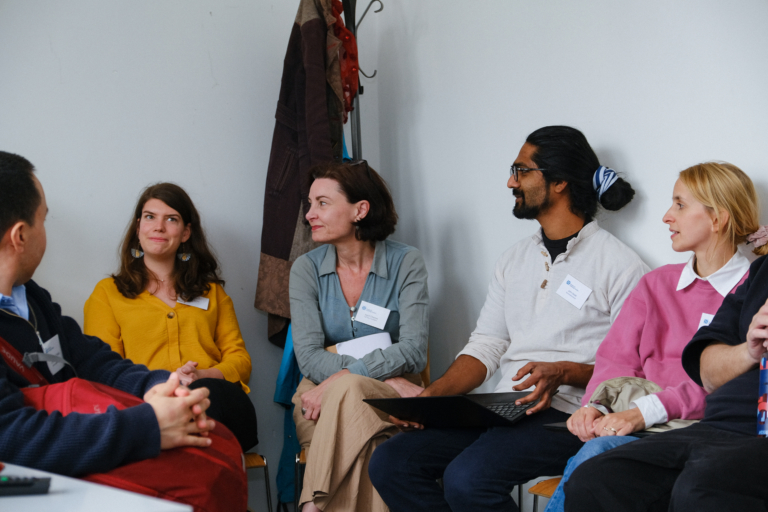
10th Members' Meeting
Aktuelles 19.04.2024 Die Neuausrichtung geht in die Umsetzung! Zur 10. Mitgliederversammlung des Bündnisses für nachhaltige Textilien kamen rund 125 Teilnehmende nach Berlin. In Vorträgen, Workshops und Arbeitsgruppen diskutierten sie angeregt und legten weitere wichtige Weichen
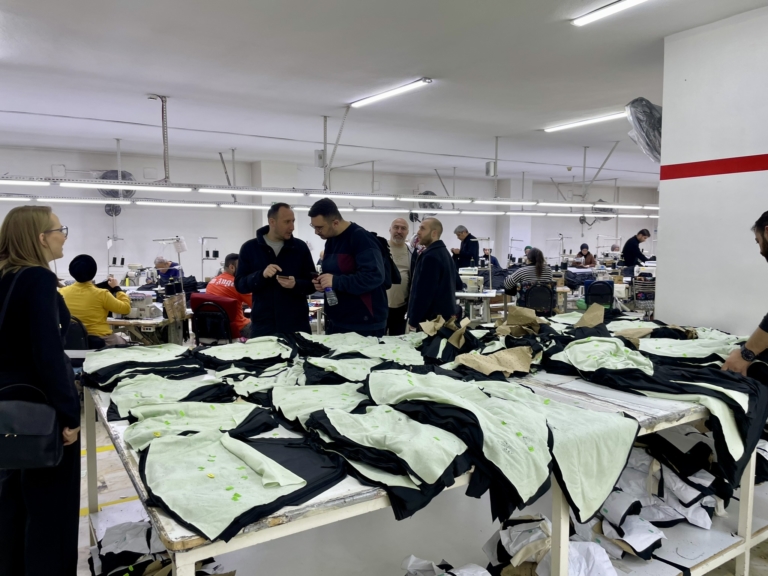
Strengthening the rights of refugee workers in the textile sector
Aktuelles 04.04.2024 Die Mitglieder der Bündnisinitiative (BI) „Access to Remedy for (Refugee) Workers“ konnten sich bei einer Reise in die Türkei im März 2024 selbst von der Arbeit überzeugen, die der Projektpartner MUDEM vor Ort

It’s a wrap: Joint webinar series on EU Textile Strategy has come to an end
Aktuelles 03.04.2024 Was im September 2023 als gemeinsame Webinarreihe des Bündnis für nachhaltige Textilien, des Grünen Knopfs und GIZ FABRIC begann, ist nun abgeschlossen – und das Organisationsteam mit dem Ergebnis der Reihe sehr zufrieden.

Improving Grievance Management Systems in the textile sector
Aktuelles 28.03.2024 Das Bündnis für nachhaltige Textilien hat zusammen mit seinen Mitgliedern Bierbaum-Proenen, CARE Deutschland, Deltex, deuter, ORTOVOX und Sympatex eine Bündnisinitiative zur Verbesserung des Zugangs zu Beschwerdemechanismen in China und Vietnam, einschließlich der tieferen
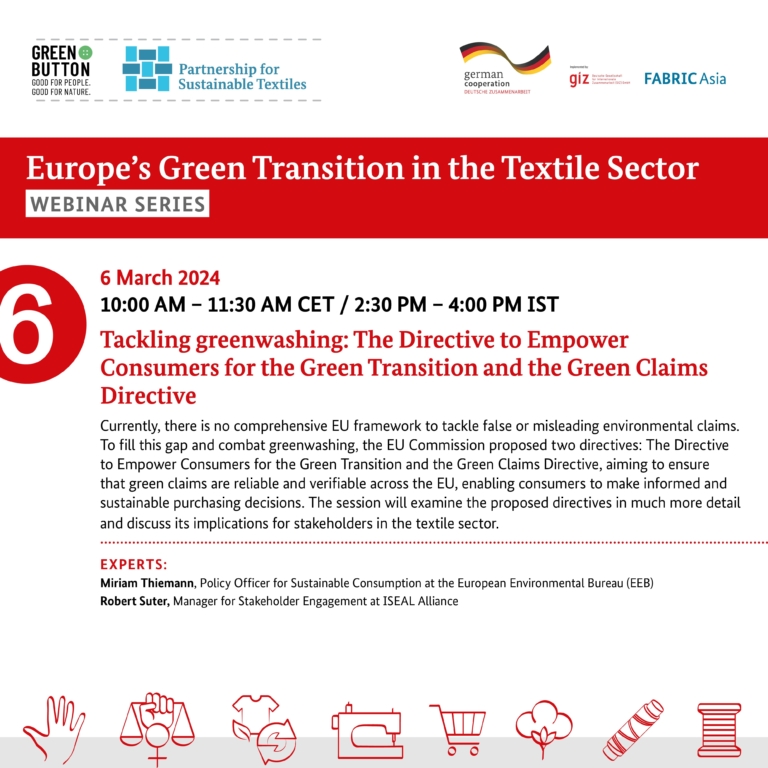
Webinar-Series: Europe’s Green Transition in the Textile Sector – Green Claims
Aktuelles 27.02.2024 Hinweis: Diese Webinar-Reihe findet auf Englisch statt. The webinar series of The Partnership for Sustainable Textile and the Green Button on upcoming legislation under the EU Textile Strategy comes to an end! Join

Training zu Decent Work für indische Bio-Baumwollproduzent*innen geht in Pilotierung
Aktuelles 23.02.2024 Im Rahmen der Bündnisinitiative „Bio-Baumwolle in Indien“ wurde im Februar ein wichtiger Meilenstein erreicht: die Umsetzungspartner Organic Cotton Accelerator (OCA) und Traidcraft haben ein Training zum Konzept der Decent Work für Kleinbäuerinnen und
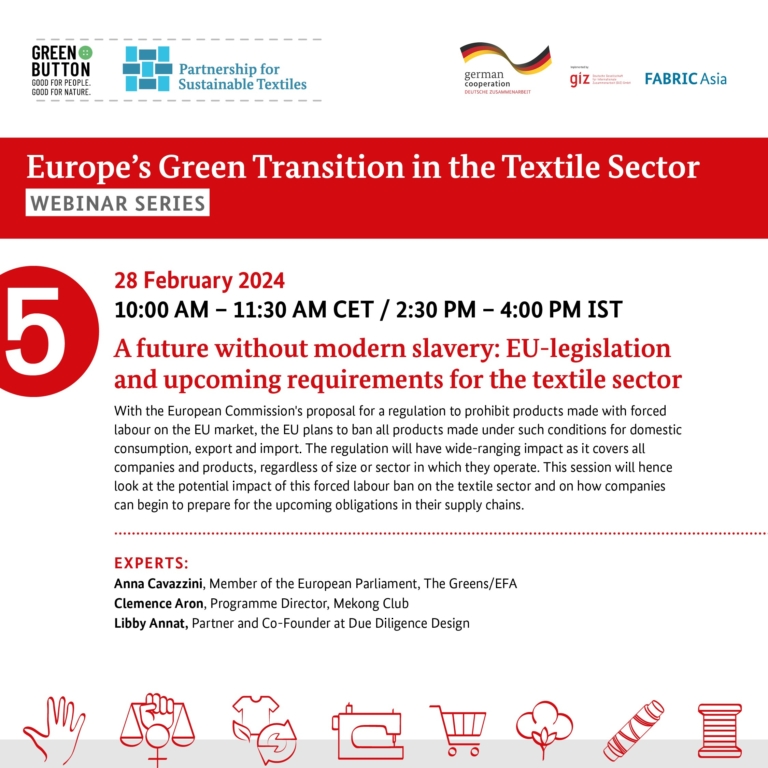
5th Session of Webinar-Series: Europe’s Green Transition in the Textile Sector
Aktuelles 19.02.2024 Hinweis: Diese Webinarreihe findet auf Englisch statt Join the Partnership for Sustainable Textiles, the Green Button and FABRIC for the fifth session of our six-months webinar series to learn more about the EU’s Textile
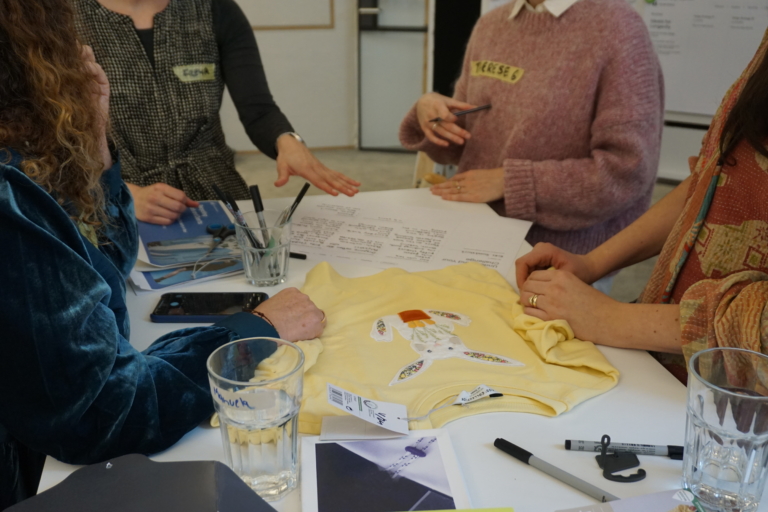
Circular Design Workshop – Implementing Circularity in the Textile Industry
Aktuelles 16.02.2024 Während sich letzte Woche die deutsche Modewelt in Berlin zur Fashion Week traf, kamen Mitglieder des Textilbündnisses – ebenfalls in Berlin – zusammen, um die Mode und Bekleidung von Morgen anders zu denken.
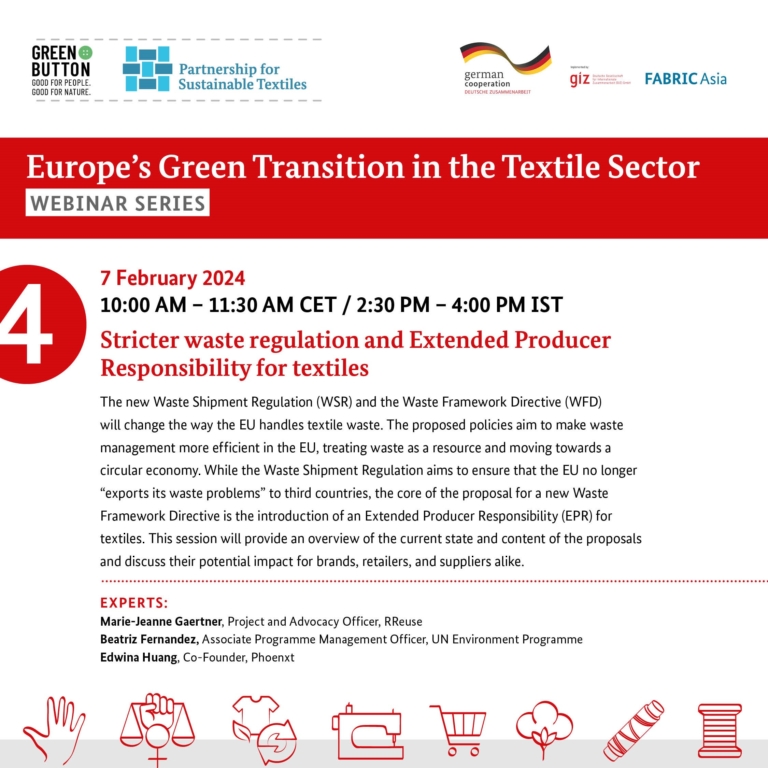
4th Session of Webinar Series: Europe’s Green Transition in the Textile Sector
Aktuelles 31.01.2024 EU Waste Legislation Hinweis: Dieses Webinar findet auf Englisch statt. Join the Partnership for Sustainable Textiles, the Green Button and FABRIC for the fourth session of our six-months webinar series to learn more
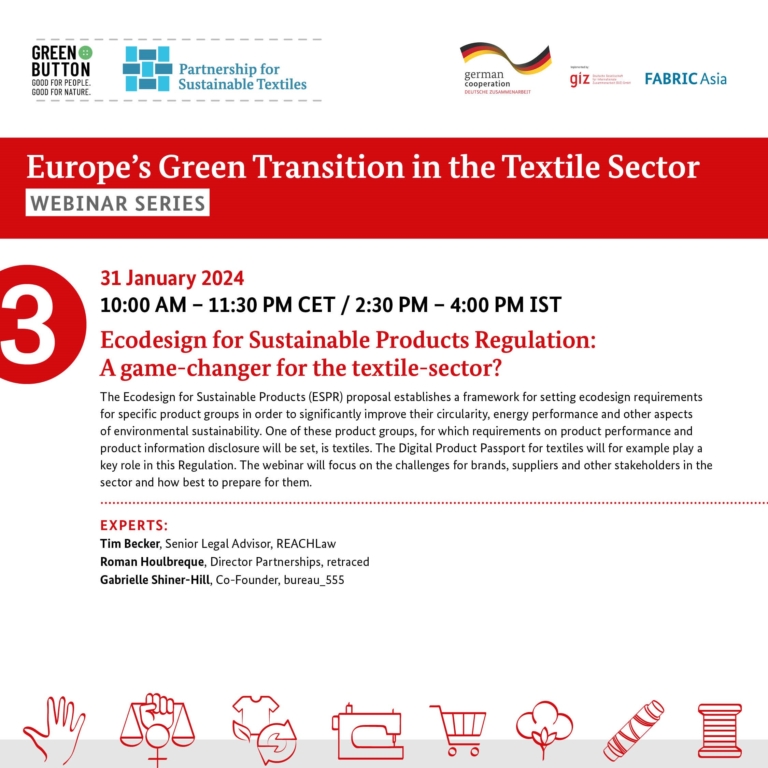
Webinar-Series: Europes Green Transition in the Textile Sector
Aktuelles 25.01.2024 Hinweis: Diese Webinarreihe findet auf Englisch statt The webinar series of The Partnership for Sustainable Textile and the Green Button on upcoming legislation under the EU Textile Strategie continues! Ecodesign for Sustainable Products
Steering Committee complete again
Aktuelles 17.01.2024 Durch die der Nachwahl kurz vor Weihnachten sind alle Sitze des Steuerungskreises des Bündnisses für nachhaltige Textilien wieder besetzt. Kilian Dieckhoff, Geschäftsleitung der Karl Dieckhoff GmbH & Co. KG, konnte die Mehrheit der
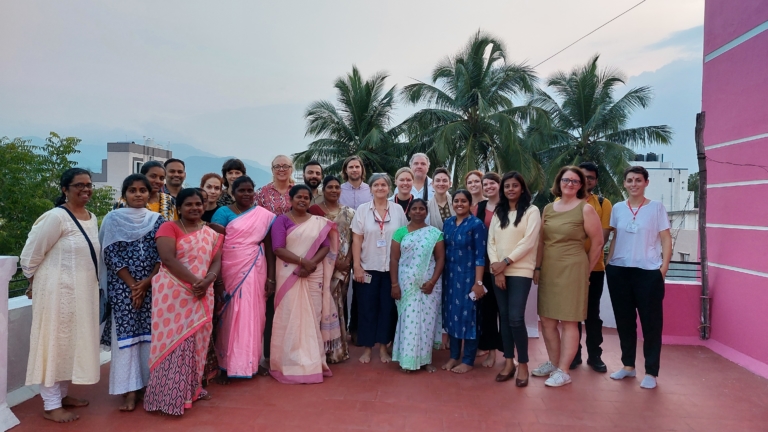
Gender equality and workers' rights in the textile sector
Aktuelles 09.01.2024 Fachdelegation zu Besuch in Indien Es war zugleich ein bewegender und bestätigender Moment für die deutsche Fach-Delegation in Indien, als Thivya Rakini, die Vorsitzende der Tamil Nadu Textile and Common Labour Union (TTCU),
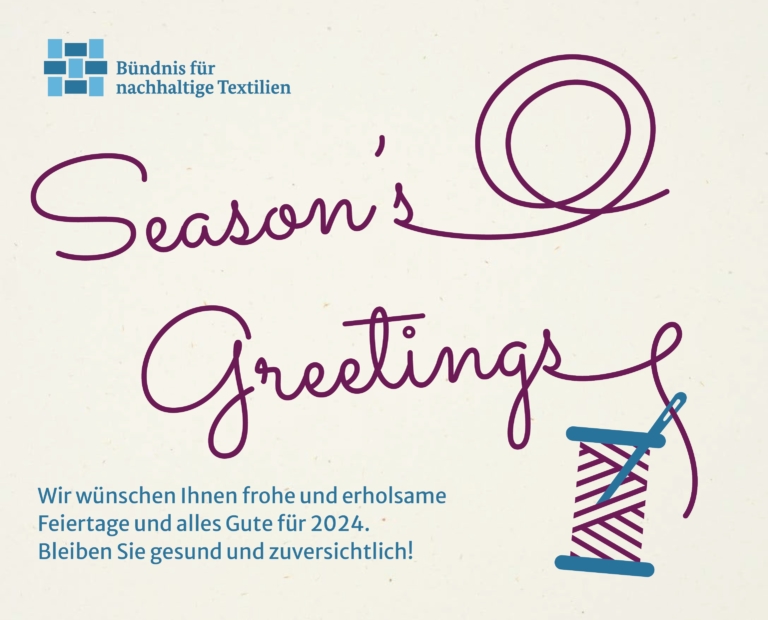
Weihnachtsgruß an die Mitglieder
Aktuelles 22.12.2023 Liebe Mitglieder, für uns alle geht ein entscheidendes Jahr zu Ende. Es war ein Jahr, in dem wir gezeigt haben, dass wir an einem Strang ziehen und die Neuausrichtung des Bündnisses mit Leben
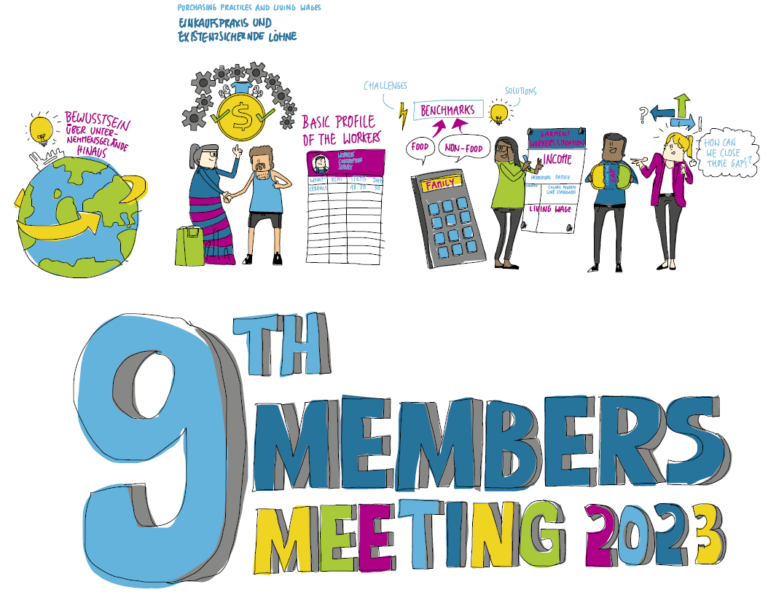
9. Mitgliederversammlung des Textilbündnisses
Aktuelles 20.11.2023 Die EU-Regularien im Fokus Die Mitglieder des Bündnisses für nachhaltige Textilien trafen sich im November in Köln zur 9. Mitgliederversammlung. Geprägt war der Austausch insbesondere von einem Thema: der neuen EU-Gesetzgebung für die
Veröffentlichung der Review-Berichte 2023
Aktuelles 17.11.2023 Veröffentlichung der Review-Berichte Review-Prozess 2023 Der Review-Prozess ermöglicht es Unternehmen, sich im Detail mit Risiken innerhalb ihres Liefernetzwerks und den damit einhergehenden Sorgfaltspflichten auseinanderzusetzen. Ziel ist es, die schwerwiegendsten Risiken zu identifizieren und
Steuerungskreis beschließt Ausweitung der Datenerhebung zur Lieferkettentransparenz
Aktuelles 06.11.2023 Im Rahmen seiner jährlichen Klausur hat der neu gewählte Steuerungskreis des Textilbündnisses unter anderem einen Beschluss zu Basiselement 2 gefasst. Dieser zeigt, dass der Steuerungskreis weiterhin konsequent auf die zunehmenden Transparenzanforderungen an die
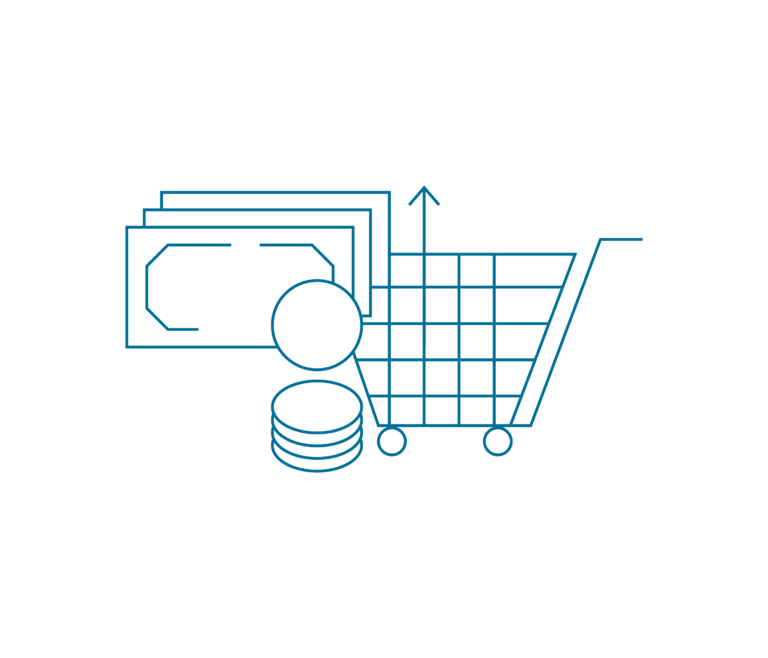
Position on Minimum Wage Negotiations in Bangladesh
Aktuelles 05.10.2023 Existenzsichernde Löhne und ein Recht auf Verhandlungsfreiheit und Kollektivverhandlungen weltweit Aktuell wird in Bangladesch der Mindestlohn neu verhandelt. Der Mindestlohn wurde zuletzt 2018 erhöht. Gemäß dem lokalen Arbeitsrecht geschieht dies mindestens alle fünf
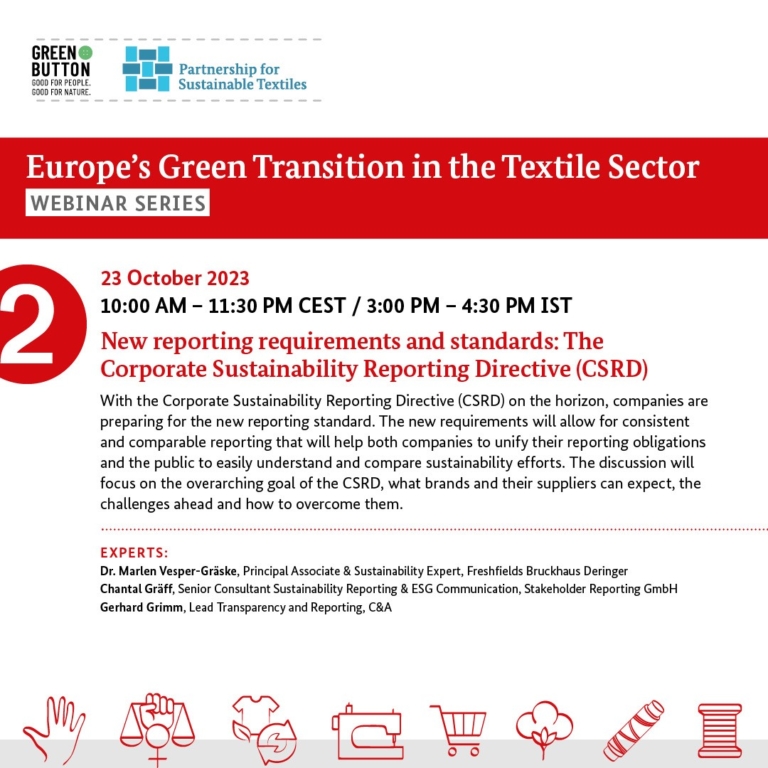
Webinar Series: Europe’s Green Transition in the Textile Sector
Aktuelles 04.10.2023 The webinar series of The Partnership for Sustainable Textile and the Green Button on upcoming legislation under the EU Textile Strategie goes into the second round – Hinweis: Diese Webinar Reihe findet auf Englisch
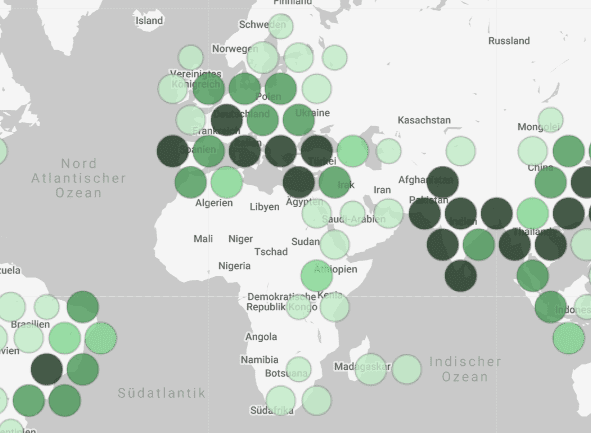
On track towards more supply chain transparency
Aktuelles 07.09.2023 Lieferantenliste der Bündnisunternehmen veröffentlicht Das Bündnis für nachhaltige Textilien begrüßt den Upload der aktuellen Lieferantenliste der Bündnisunternehmen bei unserem Partner Open Supply Hub (OSH). Die Liste beinhaltet nun alle Tier 1 Lieferanten der
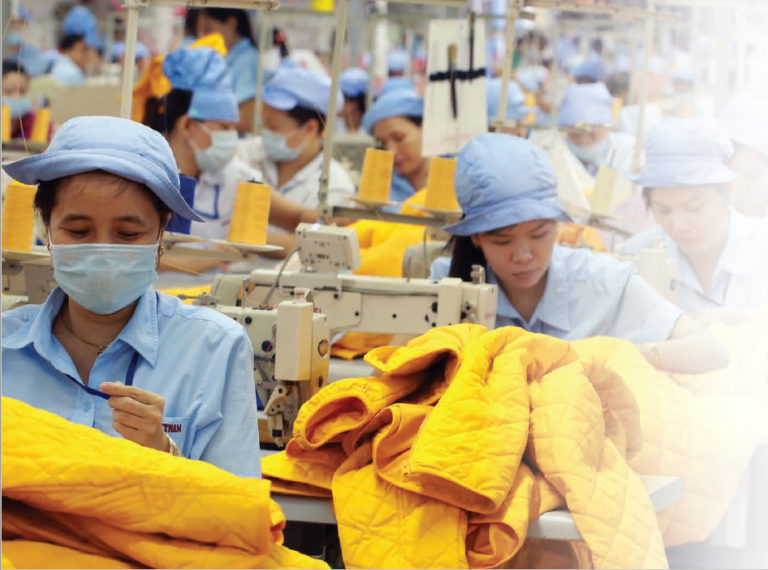
Webinar Series: Europe’s Green Transition in the Textile Sector
Aktuelles 05.09.2023 The Partnership for Sustainable Textiles and the Green Button launch joint webinar series on upcoming legislation under the EU Textile Strategy Join the Partnership for Sustainable Textiles and the Green Button on 21st
Together towards sustainability
Aktuelles 18.08.2023 Der neue Steuerungskreis tritt seine Amtszeit an Wir freuen uns, bekanntzugeben, dass der Steuerungskreis des Textilbündnisses vollständig ist und seine Amtszeit angetreten hat! Der Steuerungskreis ist das oberste Entscheidungsgremium im Textilbündnis. Unter anderem entscheidet er
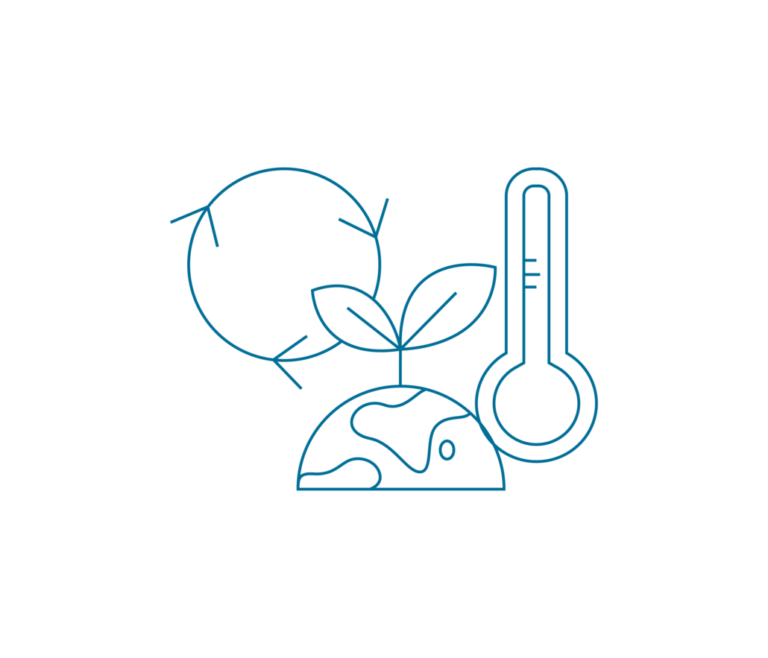
KlarTEXt: Neue Plattform für eine nachhaltige Textilindustrie der Hochschule Niederrhein ist gestartet
Aktuelles 03.08.2023 KlarTEXt Neue Plattform für eine nachhaltige Textilindustrie der Hochschule Niederrhein ist gestartet Mehrwert durch Kooperation: Mit KlarTEXt ist im Mai ein Forschungs- und Kollaborationsprojekt gestartet, das Kreislaufwirtschaft in Forschung und Praxis voranbringen will. Hindernisse
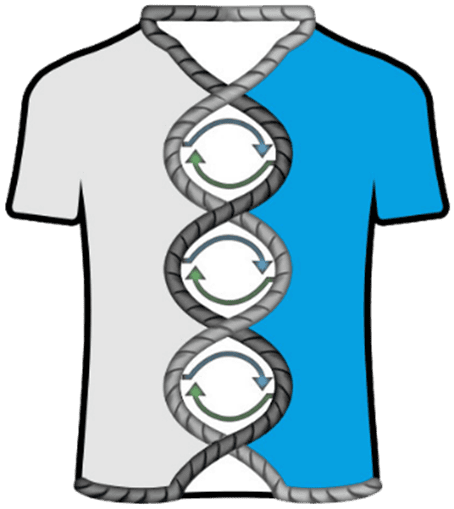
Step by step towards recyclability
Aktuelles 13.07.2023 Textilbündnis-Projekt „Kreislauffähige Produktklone II“ legt weitere Empfehlungen zum Produkt-Design vor Im Rahmen der zweiten Phase des Produktklone-Projekts des Bündnisses für Nachhaltige Textilien hat das Forschungsinstitut für Textil und Bekleidung (FTB) der Hochschule Niederrhein

We continue collaborating with Fair Wear on a joint grievance mechanism approach
Aktuelles 07.07.2023 Collaboration on joint grievance mechanism approach Fair Wear and the Partnership for Sustainable Textiles continue working on the improvement of effective access to remedy Cooperation between the Partnership and Fair Wear enters a
Mitgliedschaft hat einen neuen Steuerungskreis gewählt
Aktuelles 27.06.2023 Bündnismitglieder haben einen neuen Steuerungskreis gewählt Das Textilbündnis startet mit einem neuen Steuerungskreis in die nächste Runde. In dem vom Bundesministerium für wirtschaftliche Zusammenarbeit und Entwicklung (BMZ) initiierten Bündnis kommt es zu Veränderungen
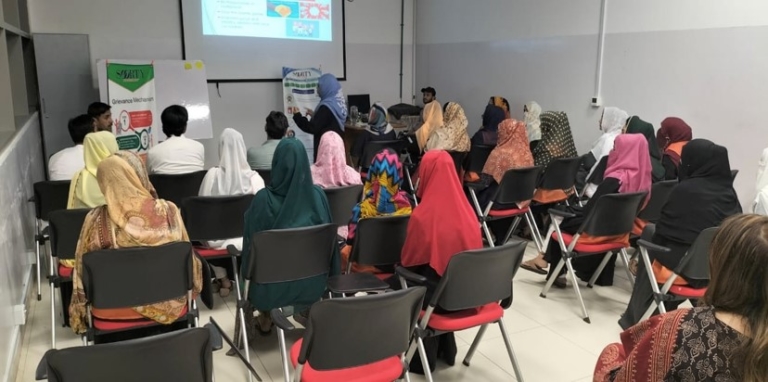
More than 25.500 workers participated in trainings on factory-internal grievance mechanisms
The project “Strengthening factory-internal grievance structures in the Pakistani textile industry” is coming to a successful end. The project was launched in February 2021 with the aim to support suppliers in setting up or further develop the functioning of internal complaints structures, and to enable management and workers to solve incidents and grievances through dialogue.
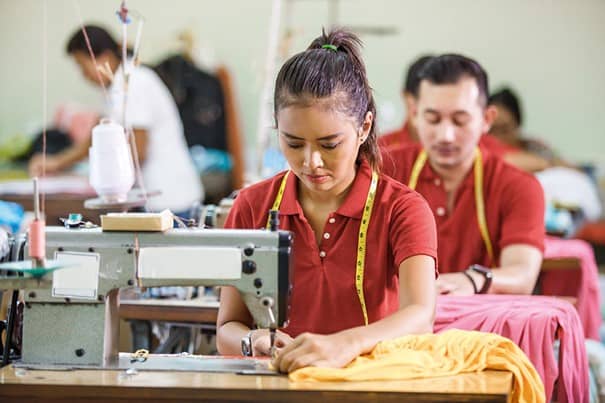
Towards decent work for all
Aktuelles 25.04.2023 Asia’s textile industry 10 years after Rana Plaza Tuesday, 25 April 2023 | 9:00 AM – 1:00 PM (CEST) GIZ Representation | Reichpietschufer 20 | 10785 Berlin, Germany and virtually (hybrid event) Ten years ago,
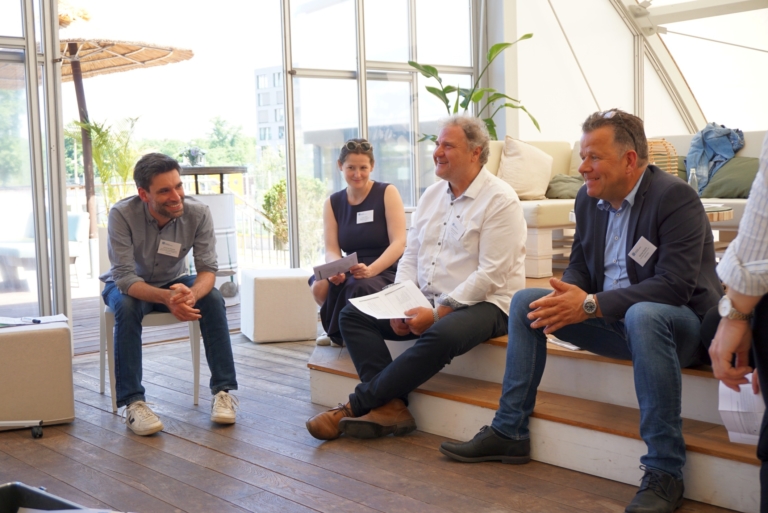
Working Meeting 2023, April 26
Aktuelles 26.04.2023 Change of Perspective Am 26. April 2023 findet im artloft.berlin das diesjährige Arbeitstreffen des Textilbündnisses statt. Bündnismitglieder sind wie schon im letzten Jahr eingeladen, Themen vorzuschlagen, an denen sie zusammen mit den anderen
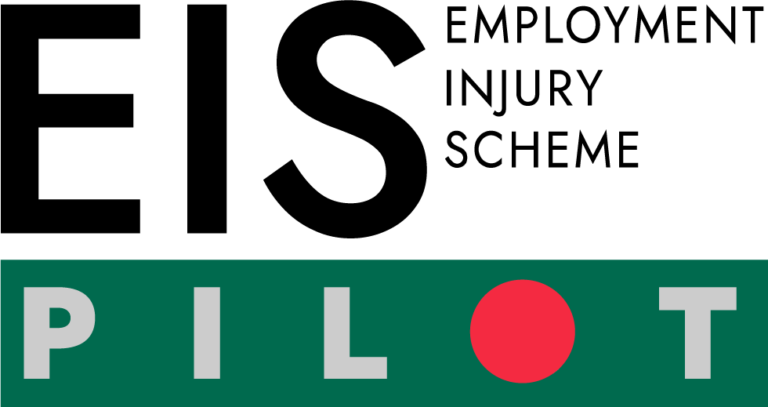
Webinar on Employment Injury System Pilot Project in Bangladesh
Aktuelles 15.03.2023 Pilotprojekt für ein soziales Sicherungssystem Das „Employment Injury Scheme“ (EIS) ebnet seit 2021 den Weg, um in Bangladesch ein längst überfälliges Sozialversicherungssystems für Beschäftigte einzuführen. Wenn Arbeitsunfälle zu dauerhafter Invalidität oder sogar zum


